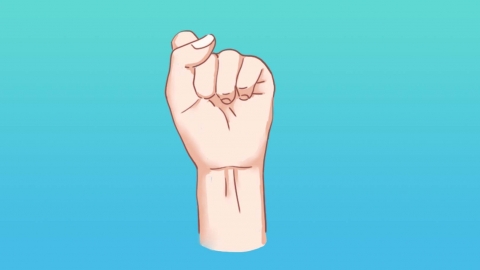What causes weak hands and difficulty gripping upon waking in the morning?
Generally, the main causes of weak hands and inability to grip tightly upon waking in the morning include improper sleeping posture, exposure to cold during sleep, carpal tunnel syndrome, cervical spondylosis, and rheumatoid arthritis. If discomfort occurs, it is recommended to seek timely medical evaluation and treatment at a正规 hospital. Detailed explanations are as follows:

1. Improper sleeping posture
Long-term compression of the arm during sleep can obstruct blood circulation, lead to insufficient muscle perfusion, and affect nerve conduction, resulting in weak hands and difficulty gripping upon waking. Adjusting sleeping posture to avoid prolonged pressure on one arm, along with gentle post-waking hand exercises such as clenching fists and stretching, can help restore normal blood flow.
2. Exposure to cold at night
When arms are exposed during sleep, cold-induced vasoconstriction slows blood circulation and may cause muscle spasms, leading to hand weakness and reduced grip strength. Keeping arms warm at night—such as by wearing lightweight arm sleeves—and soaking hands in warm water followed by gentle massage after exposure can help relieve spasms.
Excessive or repetitive wrist use can compress the median nerve within the carpal tunnel. This compression worsens when the wrist remains bent during sleep, causing morning symptoms including hand weakness, impaired grip, and numbness in the fingers. Under medical guidance, medications such as mecobalamin tablets, vitamin B1 tablets, and ibuprofen sustained-release capsules may be used. In severe cases, surgical decompression via carpal tunnel release may be necessary. Avoiding prolonged wrist strain in daily activities is also important.
4. Cervical spondylosis
Herniated cervical discs can compress nerve roots. Poor sleeping posture may exacerbate this compression, disrupting nerve signal transmission and causing hand weakness, poor grip strength, and associated neck and shoulder pain. Medications such as diclofenac sodium sustained-release tablets, eperisone hydrochloride tablets, and vitamin B12 tablets may be prescribed under medical supervision. In severe cases, anterior cervical discectomy and fusion surgery might be required. Using a pillow of appropriate height during sleep is also recommended.
5. Rheumatoid arthritis
This autoimmune condition causes joint inflammation, often affecting the joints of the hands. Inflammatory activity increases at night, leading to morning stiffness, hand weakness, and difficulty gripping, which may slightly improve with movement. Under medical guidance, drugs such as methotrexate tablets, leflunomide tablets, and celecoxib capsules can be used. Daily precautions should include keeping hands warm and avoiding excessive fatigue.
In daily life, maintaining proper sleeping posture to prevent arm compression, ensuring adequate hand warmth, limiting prolonged wrist and neck use to prevent overuse injuries, undergoing regular check-ups for joints and cervical spine health, and promptly resting when symptoms appear are all important measures to prevent worsening discomfort.








